
Arquivo para a ‘Economia’ Categoria
A dangerous threshold of war
With the shipment of weapons to Ukraine NATO has prolonged Ukraine’s war with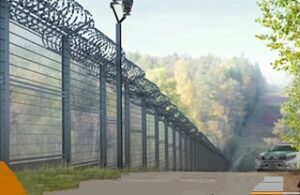 Russia in the tactical field for at least another year, this says Western and Russian analysts, but another front is threatened as Finland is about to join NATO only missing bureaucratic details.
Russia in the tactical field for at least another year, this says Western and Russian analysts, but another front is threatened as Finland is about to join NATO only missing bureaucratic details.
It irritates Russia more than seeing its border countries join NATO, this was even the claiming limit for war with Ukraine and Finland has the longest border of NATO countries with Russia, more than 1,300 km, comparable to distance between Porto Alegre in Rio Grande do Sul and Queluz on the border of the State of São Paulo with Rio de Janeiro.
Finland erects a steel cable fence on the border (photo), and the countries have already lived through a war called the Winter War (it has this name because it started at the end of November 1939 and ended on March 12, 1940 with a treaty in which it lost part of its territory and a good part of its industrial capacity).
Although Finland has a small army, at the time even smaller and is now arming itself, it resisted heroically, but lost a significant part of its territory (see our post) and feels threatened by the current war in Eastern Europe.
There is another likely target of the war which would be Moldova, there is already a small separatist region called Transnistria, but in the geopolitical aspect it is Finland’s entry into NATO that most affects Russia and creates a strong pole of tension and now the new iron Curtain.
Sweden is bigger and has a larger population, practically more than twice that of Finland and it has also been arming itself and the process of joining NATO is slower, but the war could accelerate this process and military aid to Sweden would be inevitable.
An appeal by Belarus, an ally of Russia, for a peace agreement and the recent visit of Xi Jinping to Russia, which was expected to have a greater commitment to peace, remains unknown and it is possible that Putin has exposed his plans, and this includes Brazil for being part of the BRICS and having postponed the trip to China due to pneumonia from president Lula, but China is waiting for the visit.
An eventual war with Finland would open a delicate pole of the war, since it is practically a member of NATO and military retaliations could come into play in an explosive way.
The horizon of a possible peace is becoming more and more distant and the possibilities remote.
War becomes dangerous and can get out of hand
As the war scene advanced in Eastern Europe, several analyzes were made here showing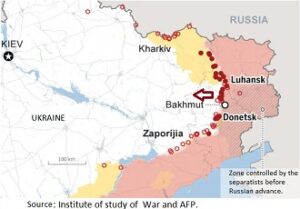 an increasingly cybernetic war and with chances of being nuclear, now both international news (such as CNN for example) and the American intelligence services, point out this tragic evolution.
an increasingly cybernetic war and with chances of being nuclear, now both international news (such as CNN for example) and the American intelligence services, point out this tragic evolution.
Officials of the US Senate Intelligence Committee spoke last Wednesday (08/03) of this scenario affirmed what is written in the report of the Office of National Intelligence: “degraded Moscow’s conventional land and air capabilities and increased its dependence on weapons nuclear weapons”, so a window for peace is becoming smaller and smaller.
The battle of Bakhmut, which could pave the way for a larger invasion of Ukrainian territory, is costing both sides dearly, but will intensify the war on Ukrainian soil, with losses and unpredictable scenarios.
While the Russians announce victory in Bakhmut, the Ukrainians say that each Ukrainian soldier killed cost the lives of 5 Russian soldiers, propaganda aside, Russia does pay an expensive cost for the dispute in the region and shows that it will be a war step by step and costing many lives, in addition to refugees and material destruction.
At the global level, NATO’s involvement grows as Russia seeks allies beyond China.
The involvement with weapons and even training of troops from Poland and Germany, as well as the already evident involvement of NATO since the beginning of the war, can extrapolate the limits of Russia and Poland and pass to the entire European continent, already a Russian “new Pearl Harbour”. , launching long-range missiles into American territory would start a global tragedy by the power of weapons.
Weapons are available and there is also tension in the East, now with South Korea and Japan approaching Western forces.
Peace is always possible, but it requires an environment of cooperation and understanding between nations.
In the week of a year of war
There are intense bombings on the combat fronts in Ukraine and missiles over the country,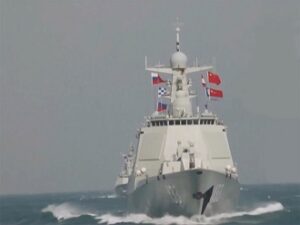 there is no prospect of ceasing shooting, internally Ukraine had a 30% drop in its production, while Russia manages to circumvent international sanctions, but not internal dissatisfaction.
there is no prospect of ceasing shooting, internally Ukraine had a 30% drop in its production, while Russia manages to circumvent international sanctions, but not internal dissatisfaction.
The fear of a more intense war is so great that a part of Russian pregnant women, who can travel, went to Argentina, for the sympathy of the government there and it cost, since Argentina has a serious economic crisis that devalued the currency. .
The military maneuvers in the South Atlantic generated protests in the West, Russia, South Africa and China carried out joint military exercises, from the countries that make up the economic bloc of the Brics, Brazil maintains neutrality and should talk this week with Zelensky, while India makes efforts her peace.
The Brazilian government refused to deliver ammunition to the tanks that Germany is sending to Ukraine, but the conversation between Zelensky and Lula could change the scenario, since there is an express request from the American government, and Lula met with Biden recently.
This all shows that there is not just an ideological context, the geopolitical context is thought of, there is even an undeclared agreement between Russia and Israel, which throws the Arab world to the Soviet side, among these forces the fearsome Iran that has been sending drones to Russia.
All this is a cold analysis of the war, but some sources point to 60,000 dead in clashes on the Russian side, and more than 100,000 on the Ukrainian side, thousands of mutilated people, an absurd number of exiled Ukrainian people, in addition to material damage.
In the State of São Paulo, the governor decreed the end of mandatory vaccines in public environments and the federal government will no longer release daily reports on the pandemic
Wrath and Peace
 It is true that the history of humanity is punctuated by wars, but what would happen if it were the other way around and men sought in all circumstances to find a more solidary and less dark path for their conflicts.
It is true that the history of humanity is punctuated by wars, but what would happen if it were the other way around and men sought in all circumstances to find a more solidary and less dark path for their conflicts.
However, an international conflict at this moment would be a tragedy that could put the civilizing process itself in check and whose consequences would be unimaginable numbers of human lives lost, nature contaminated and material damage.
Meanwhile, the conflict in Eastern Europe is taking on an increasingly international outline, a Russian frigate loaded with unstoppable hypersonic missiles and with a range of a thousand kilometers is heading across the South Atlantic towards the American east coast.
The Stoic philosopher Seneca (4 BC–65 AD) who wrote a treatise on Anger, which unlike many others says that there is no wisdom in it, wrote in his work: “No man is made more courageous through anger, except one who, without anger, , would not have been courageous: anger, therefore, does not come to help courage, but to take its place” (I.13).
So war is not only a bad adviser, it takes the place of courage and true heroism, that which leads humanity to harmony, tolerance and true civility.
It may seem altruistic, but the true Christian teaching is present in many religions, remember Ghandi’s Hinduism, which intransigently defended peace, so says the attentive reading of the Bible: “You have heard what was said: An eye for an eye and a tooth for tooth! I, however, say to you: do not face those who are evil! On the contrary, if someone slaps you on the right cheek, offer him the left as well!” (Mt 5,38-39).
We can avoid a civilizing catastrophe, but not without forgiveness and concessions. There´s still time.
Anger and social issues
One of the strongest arguments for anger is the social issue, before economic, now cultural and ethnic.
and ethnic.
The book by the American John Steinbeck, caused a great malaise in society, was cited with a certain reverence when he won the Nobel Prize for Literature in 1962 although the book is from 1939, the book was well received in Soviet Eastern Europe at the time and in the Scandinavian countries.
At the time, the book was burned in public squares and banned from schools, it was the beginning of the cold war and McCarthyism (persecution of communists in the USA), although the author never had an affiliation.
The book begins with Tom Joad, the central character of the book, asking for a ride after 7 years in prison which was his sentence for having murdered someone as a result of a bar fight, even though it was in his self-defense he ended up being declared guilty.
He finds nothing in his old house and ends up discovering that they had sold all the belongings and going to Uncle John’s house and getting there he realizes that everyone is ready to leave and discovers that the big companies and farms are closed and the farmers are leaving to California to look for work.
It is the period of the great American depression, and social issues are emerging, the book shows the conditions of work and exploration in the fields of fruit plantations in California, Steinbeck is from the Salinas region, where the novel takes place, which although fiction has a connection with the region.
The question is how far can the limits of this type of revolt go, is it just violence and ideological struggles when these conditions are present, what are the alternatives to the problems, is it likely that we will enter a new recession, in addition to the risk of war, the book by Steinbeck gives us a similar scenario (recession and war) and may point us not to a return to the past, but to a new possibility for the dark future that awaits us.
Steibeck, John. (1939). The grapes of wrath. First edition: New York Viking, 1939.
The fair and the legal
Legality is evidently based on laws, even if strange or questionable, it is a kind of “social contract” for living in society, which is why the topic of the previous post is relevant, even more so if one considers that the highest point of what is legal today is neocontractualism.
for living in society, which is why the topic of the previous post is relevant, even more so if one considers that the highest point of what is legal today is neocontractualism.
Paul Ricoeur wrote in two volumes on the subject, done in the form of essays, in the third essay he deals with John Rawls’s Theory of Justice, not only attests to its relevance but also he claims what almost all of us said at a time in our childhood : “this is unjust” and then this precedes the sense of the Just as they also concern not only the law, but all people.
Ricoeur in the preface of Justo 1 already pays attention to the detail that the theme is connected to the idea of what is ethical, in classical philosophy, is “the desire for a ‘good life’ with and for others in just institutions”, and here he situates A good part of the civilizing crisis has emerged: the mistrust that exists in democratic institutions.
The expression “good life” taken up from Aristotle is a qualifier of good in a strict ethical sense, so the good is inseparable from the good of the other, under the penalty of being nothing more than a reprehensible selfishness, which degrades the subject in the sense of moral plane.
Put more clearly, the relationship with the other is constitutive of self-awareness, and it is, to a certain extent, ethical beyond the legal and merely moral.
Where only obedience is decisive, even with an inner conformity to the moral Law, which can be unavoidable in every ethical life, this has something beyond the Law, in it man desires the Good, aspires to the Good for himself and for others, in a sense that also becomes consciousness for the other.
It is obvious that this finds a barrier in our faults, the bad feelings, the bad actions, the violence that mark society since the most primitive times, in this sense it is necessary to awaken the conscience of guilt, which contains in it the very conception of judgment, this means to limit yourself.
For this reason, the theme of freedom is relevant, what kind of freedom is desired and under the pretext of what conception of justice, thus “fair institutions” are needed.
So this is Ricoeur’s formula: “: « the desire for a good life with and for others in just institutions », without them the legal becomes revolting.
However, it must be said that “institutions” are not limited to the legal aspect, in the same way that what is fair cannot be reduced to what is legal, it is necessary to analyze it in depth.
To explain this, Ricoeur says what is awareness of the Law: “Applying a norm to a particular case is an extremely complex operation, which implies a style of interpretation irreducible to the mechanics of practical syllogism”, that is, simple logical rules, there is not one subjectivity, but a transcendence.
When giving a lecture to the L’Arche Association (founded by Jean Vanier) that cares for exceptional people, he addressed the theme and spoke of respect when dealing with the difference between the normal and the pathological, relying on the works of Georges Canguilhem, who discusses the epistemology of biology.
War at the crossroads and pandemic under review
Analyzing these two themes of great global relevance, complicating elements of the great civilizing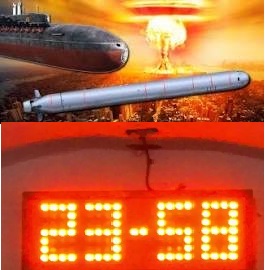 crisis, which we have already analyzed the political and cultural aspect that is its background, we see a war on a global scale and a pandemic under analysis by the WHO, regarding the use of the term.
crisis, which we have already analyzed the political and cultural aspect that is its background, we see a war on a global scale and a pandemic under analysis by the WHO, regarding the use of the term.
These are two euphemisms, as the war already has global proportions with the sending of Leopard tanks by Germany and Poland, while Russia sends its ship called “the end of the world” to international waters in the North Atlantic, there is no prospect of Peace, the pandemic continues what is being discussed is whether the word should continue to be used, the kraker variant infection is already seen worldwide as fast and easy to transmit.
After the announcement of the delivery of Leopard tanks to Ukraine, Russia has already bombed the country with hypersonic missiles that are out of radar range and announced the development in scale of the Poseidon nuclear weapon (image), an Autonomous Nuclear torpedo with intercontinental capacity, as relies on submarines can reach coastal cities in practically all continents.
Vice-President of Security Council and ex-president of Russia Dmitri Medvedev said that whoever has nuclear weapons does not lose a war, and the declaration is seen as a threat to the involvement of European countries and the United States, now seen as direct involvement by the declared shipment of weapons.
Analysts from all over the world, including the so-called symbolic “Doomsday clock”, which began after the end of World War II, advanced the “clock” to 90 seconds from midnight, due to the war in Ukraine and the escalation of threats between the West and Russia.
In 1945, created by biophysicist Eugene Rabinovitch and organized by the Bulletin of Atomic Scientists, the Doomsday Clock featured scientists such as Albert Einstein, J. Robbert Oppencheimer and Marx Born, who are still renowned scientists who maintain this analysis, the 23:58 time: 30 is the closest since its inception.
The WHO is also considering suspending the state of “public health emergency of international interest”, a euphemism for declaring the end of the pandemic, which is worrying because more than 170,000 deaths have resulted in China alone in recent weeks, and the kraken variant continues expanding, with this the help of nations with health difficulties and a global policy to combat the virus is weakened.
I do not believe that the current crisis, which includes and is based on cultural values, can dissipate, but attitudes of peace and care for life can give us some warning, the authorities must bear this in mind.
Addendum:
After the publication of this post, came the official WHO statement: “We cannot control the covid-19 virus, but we can do more to deal with the vulnerabilities of populations and health systems”, said its Director General Tedros Adhanom this Monday. -Friday (01/30/2023).
Insanity in War and Indefinition in the Pandemic
The news of the War in Eastern Europe is that the struggle for the conquest of the Soledar region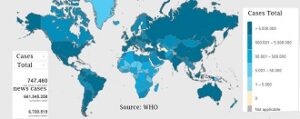 had a high military cost and the city was practically destroyed with just over 10 thousand inhabitants has a strategic military significance and the consolidation of Russian positions in the Donetsk region , while the missile frigate Zircon sails across the Atlantic.
had a high military cost and the city was practically destroyed with just over 10 thousand inhabitants has a strategic military significance and the consolidation of Russian positions in the Donetsk region , while the missile frigate Zircon sails across the Atlantic.
The Ukrainian defense denies dominance in the region, while the Russian one celebrates amid a controversy with the mercenaries of the Wagner command who claim that they fought in the region.
The meaning of this battle is that of a war that each piece of territory means bloody battles and still indicate a long period, unless a more aggressive and more dangerous strategy.
The inhabitants of the neighboring city of Sirversk dream of peace, but it could be the next combat, as well as the strategic city of Bahkmut for the land war.
The pandemic is experiencing days of uncertainty, neither the diagnoses nor the severity of the new variants are clear, but it is known that “kraken” is highly contagious.
Although the WHO policy is not to make a fuss and leave the measures to be taken unclear, the picture is alarming (see map)+ and the kraken variant has proven to have higher contagion rates and the effectiveness of vaccines from the WHO is not clear. first lineage.
What is expected in war and in the pandemic is that affective measures are found to save lives, avoid even greater radicalization than the current situation and give simple people hope for a future with peace and security.
The causes of peace
This is the subtitle of chapter 7 “Why are we like this (2)?” of Theodore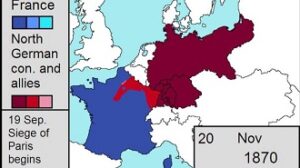 Dalrymple’s book that we analyzed this week, topic 1 which deals in particular with transcendence, we left it for the last analysis, although the book does not end there, although this title goes to “Why are we like this (7)?” and then talks consequences, but I think we should first think about why we think that way and where did our culture go, which is the author’s essential purpose expressed in other books of his authorship.
Dalrymple’s book that we analyzed this week, topic 1 which deals in particular with transcendence, we left it for the last analysis, although the book does not end there, although this title goes to “Why are we like this (7)?” and then talks consequences, but I think we should first think about why we think that way and where did our culture go, which is the author’s essential purpose expressed in other books of his authorship.
The aspect of the causes of contemporary relativism was already discussed in the previous topic: empirical and abstract, but without overcoming in depth the dichotomy about logical (abstract) truth and scientific empiricism (valid in laboratories for specific cases) which also already has its questions both in philosophy and in science itself, see the anachronistic case of the virus, it cannot be prevented because mutations cannot be controlled and nature also reveals its strength in negative aspects, we hope that the positive thing is to rebalance the disastrous human action.
The author’s approach is interesting, but it is restricted to the European sphere, there is no analysis neither in this author nor in other Europeans there is no analysis of the colonial dispute, also in the leftmost analysis of Slavoj Žižek (I will write without the accents in the Z because for non-Slavs this is too extravagant), because in my view they all focus on state power and its palliative solutions. The peace analysis starts from the idea that the last two wars were basically caused by the conflict between Germany and France (there was the previous Franco-Prussian war, see the map), and the European Union could be a “cause of peace” since a greater harmony in Europe could destroy the reasons for the first two wars. big conflicts.
It was thought then that no one believes that “France would attack Germany, not the other way around. The resulting conclusion would be the following: without this vast European apparatus of containment, the Hun [name given to Germans during the wars] would revert to its old form” (Dalrymple, p. 111). The scenario at the time of the book seemed stable, and although it is plausible to think that greater “unity” between nations means less war, there was no thought of the possibility of England leaving the Union (Brexit, started in a plebiscite in 2017 and finalized in 2020), nor a more recent Soviet turnaround from Russia.
So the causes of peace, as we have already defended this thesis in other posts, almost always result from bad peace agreements, not just truces, but what promises a stable future, because that was how the bad agreement between Germany and France after the first World War, resulted in the Second, although the trigger was the assassination of Archduke Francis Ferdinand, heir to the already fragile Austro-Hungarian Empire and see that this region can be a trigger again once Bosnia and Serbia wave to the Russian government, and the second war ends with bad deals between NATO and the soviet empire.
The entry of countries from the east to the European Union should be distinct from joining NATO’s military force, this for example is the case with Turkey, although the threat of leaving the community remains.
However, the author points out the Achilles heel of the European Union, a “pension fund” for tired politicians who want to maintain their clientelism: “after having been defeated or losing the willingness to go through the rigors of the electoral process” (p 117).
In comparison with the Soviet state, the author says that it is possible to identify the subject fed by the EU from a kilometer and a half away: “it is a type of subject that has developed that typical countenance of the former members of the Soviet Politburo”, a tendency of the current states the left or the right, within a reasonable proposal that is a greater union between nations, which should differ from states where the appetites of its members are satisfied by those who best know how to manage their appetites, and this does not lead to a true new co-governance and true management of the public good.
So the cause of peace that would apparently come (in 2010) from a greater integration of countries, nations continue in their cultural differences, unfortunately it did not come true, the model of Pax Eterna is bankrupt.
Dalrymple, Theodore (2016). A nova síndrome de Vicky: porque os intelectuais europeus se rendem ao barbarismo. Transl. Maurício G. Righi. Brazil, São Paulo: É realizações, original english 2010.
What would be the possible offensive of Ukraine
While the peace negotiations are still at square one, Russia and Ukraine are drawing up their strategies, Russia continues to carry out scattered bombings throughout Ukrainian territory, last weekend it was in the city of Uman, south central Ukraine.
are drawing up their strategies, Russia continues to carry out scattered bombings throughout Ukrainian territory, last weekend it was in the city of Uman, south central Ukraine.
In September last year, while the Russians were expecting attacks in the south near Kherson, Ukraine attacked in the northeast near the region of Lugansk and Donesk, everything indicates that the great Ukrainian offensive will follow a similar tactic, Russia withdrew its military bases in the Crimea region (as satellite images show), so a new attack to the north is expected, but it will be.
It would be logical from the previous confrontation, the bloody battles of Soledar and Bakhmut in the Dontesk and Luhansk region, that the great offensive of Ukraine promised for the spring (here in the south our autumn), that the attack could be there, but everything indicates that it could be to the south.
The serious problem is what would be the Russian reaction to a new Ukrainian advance? Can it go beyond the limits of a conventional war? worst case scenario Finland and Sweden launch an offensive in anticipation of a likely Russian attack.
It is not a war fatality, always and every conflict is avoidable, the question is to put this or that population at risk of a total war and not think about the likely retaliation, after all it is true that Ukraine went to the extreme for having its territory invaded , the other side will be the same.

